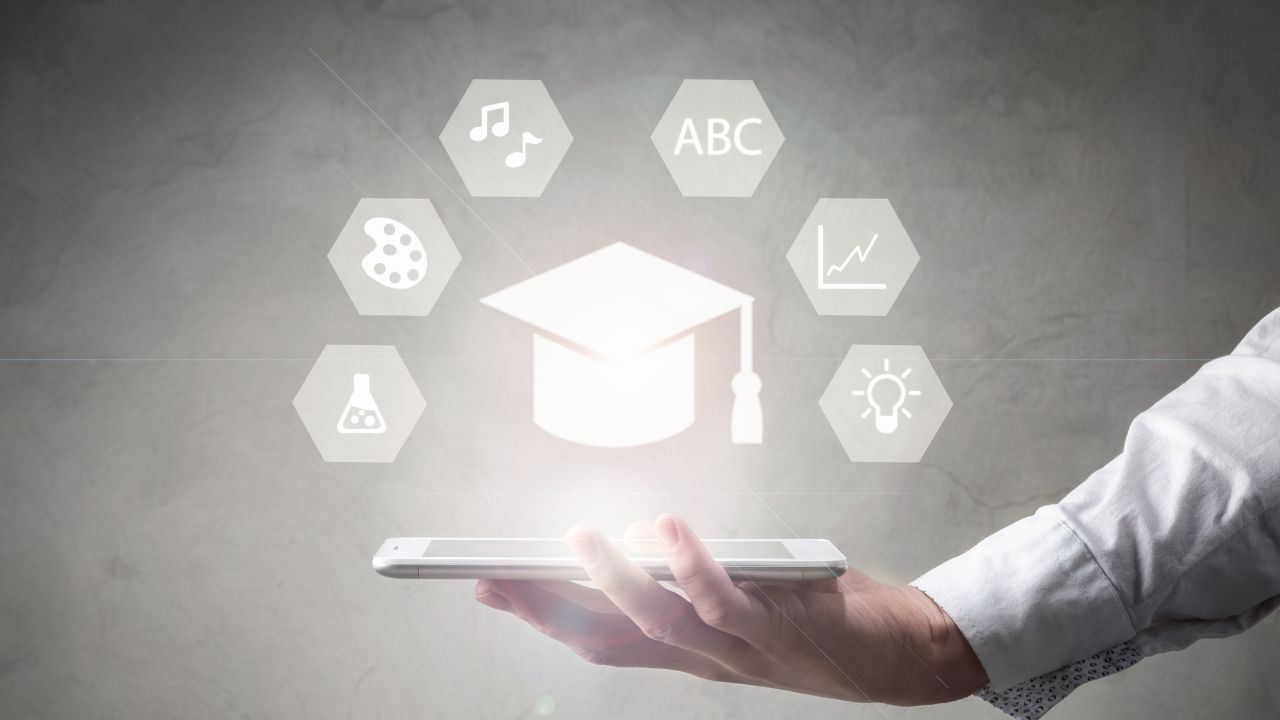- By Ritesh Kumar
- Thu, 21 Dec 2023 06:27 PM (IST)
- Source:JND
In 2023, the education sector witnessed a shift toward preparing students for an ever-evolving future. This year saw educators and institutions embracing integrated learning, prioritising skill development, leveraging technology, adopting innovative teaching methods, and refining evaluation techniques. These pivotal trends signify a collective effort to equip students with the adaptability and innovation needed for success in tomorrow's dynamic world. Against this backdrop, the emergence of EdTech and upskilling platforms has played a pivotal role, further reshaping the educational landscape and offering innovative avenues for learning and development.
Harkunwar Singh, the Co-founder, and CEO of Novatr, highlights five pivotal trends that have steered the educational landscape in 2023, with a significant focus on preparing students to confront the challenges of the digital era.
Here are the key points:
1. Integrated Curriculum with Online Learning:
One of the most significant shifts in education this year has been the integration of curriculum, seamlessly blending traditional and online learning. The boundaries between physical and virtual classrooms are becoming increasingly blurred as educators recognise the benefits of a holistic approach to learning. This integration allows for a more flexible and personalised learning experience, catering to diverse learning styles and preferences. Educational institutions are leveraging advanced Learning Management Systems (LMS) and collaborative tools like Canvas or Moodle, seamlessly bridging in-person and online learning. These platforms centralise course materials, communication, and assessment, easing navigation within the blended learning environment. LMS enables educators to design interactive modules, track student progress, and offer personalised feedback, enhancing the overall learning experience. This trend isn't just about technological readiness; it's about instilling essential digital skills that will shape students' academic and professional futures.
2. Focus on Skill Development:
In 2023, there is a pronounced shift from rote memorisation of facts to a more comprehensive emphasis on skill development. Educators and institutions like the Ministry of Skill Development and Entrepreneurship (MSDE), Directorate General of Training (DGT), National Council for Vocational Education and Training (NCVET), National Skill Development Corporation (NSDC), National Skill Development Fund (NSDF), are recognising the need to equip students with a broader skill set that goes beyond traditional academic knowledge to achieve its vision of a 'Skilled India'. The emphasis on skill development extends beyond the classroom, with increased collaboration between educational institutions and industries. Internship programs, apprenticeships, and real-world projects are gaining prominence as avenues for students to apply and enhance their skills in authentic settings. Government initiatives like the National Curriculum Framework 2023 that included Vocational Education into the curriculum of Indian Schools are further fueling the integration of skill development into the educational system. This progressive change, however, extends beyond the realm of technical education. It also focuses on a broader approach that emphasises essential facets such as sustainability, entrepreneurship, and mental health.
3. Massive Integration of Technology - AI at the Forefront:
According to the report of IBEF, India had 41.38 million students enrolled in higher education in the year 2020-21 and the size of the online education market in India is expected to grow by US$ 2.28 billion during 2021-2025. A significant amount of this growth is owed to AI taking centre stage. AI is being integrated into various aspects of education to enhance learning experiences, streamline administrative tasks, and provide personalised support to students. For instance, at Novatr, we have integrated emerging technologies into our curriculum to help AEC professionals reap better outcomes from our industry-aligned courses. We have integrated technologies like AI, Computational Design, BIM, Python scripting, etc. to equip students with the skills of tomorrow. AI-powered adaptive learning platforms analyze individual student performance, identifying strengths and weaknesses to tailor educational content accordingly. Virtual tutors and chatbots assist students in real time, offering personalised guidance and feedback. Additionally, institutions are leveraging AI for administrative tasks such as grading, scheduling, and resource allocation, allowing educators to focus more on teaching.
4. Revamping Teaching Methodologies:
The traditional lecture-based teaching model is undergoing a significant overhaul as educators experiment with innovative, student-centric teaching methodologies. Active learning, project-based learning, and experiential learning are gaining prominence, fostering student engagement and deeper understanding. Feedback from users and industry stakeholders fuels this evolution. For instance, consider the integration of gamification—an approach where gaming elements are applied to non-game contexts—in educational platforms. By incorporating feedback from educators and students, these platforms tailor gamified experiences, leveraging intrinsic motivators like competition or rewards to drive learning engagement. This user-centric approach ensures that learning becomes not just informative but inherently enjoyable, promoting deeper retention and comprehension.
5. Evolution of Evaluation Methods:
Assessment and evaluation methods have transformed to meet the dynamic demands of education in 2023, embracing a diversified approach beyond traditional exams. New-age learning platforms are incorporating innovative practices such as skill assessments via tool tests, data insights on real-world scenarios, and portfolio preparation, enabling students to showcase a comprehensive collection of their work. Additionally, capstone projects have become integral, providing practical applications for acquired knowledge. Through mock interviews and tests, we simulate real-world scenarios, fostering a holistic evaluation of students' capabilities. The integration of technology, including AI for automated grading and data analysis, further enhances the efficiency and accuracy of assessments. These advancements contribute to the shift towards continuous assessment models, offering educators a more nuanced understanding of students' progress, aligning with the evolving landscape of education.
The trends that have defined education in 2023 reflect a commitment to preparing students for a rapidly changing world. Integrated and flexible learning approaches, a focus on skill development, the extensive use of technology, innovative teaching methodologies, and evolving evaluation methods collectively contribute to a more dynamic and student-centred educational experience. As we expect a twofold growth in the technical job market, the emphasis on tech and skill development in education continues to catalyse our nation’s development in this ever-evolving global landscape.

